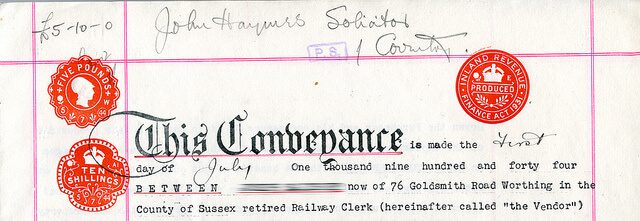What does Conveyance Mean?
Conveyancing is something that a lot of people have heard of,
but not that many people know how to define. In legal terms
conveyance means to transfer, it is the legal transfer of property from one name to another, either as ownership or lease.
Who does the Conveyancing?
If you are buying a business you should instruct a specialist
solicitor to work on your behalf. If the business is housed in a
rented property you will need the permission of the landlord for
the lease to be signed over to you.
What do I need to know about Conveyancing?
If you are buying a business and the building in which it is
housed the process is different and you may be required to pay
Stamp Duty Land Tax.
Likewise, if you are selling a business housed in a rented
property you will need consent from the landlord to allow the buyer to take occupation.
How to choose a Solicitor for Conveyancing
You should choose a specialist solicitor or conveyancer with
relevant experience. It is not advisable to instruct a
conveyancer recommended by your estate agent as the fee is
likely to include a commission and could end up being very
expensive.
If you are unsure of how to choose a solicitor here are some things to consider:
- What is the cost?
- Are they a member of the Law Society/
- Will they keep you informed at every stage of the process?
The transfer can be a lengthy process, so it is important to understand what it entails.
Solicitors for both parties will liaise which each other and
their clients throughout the proceedings. They will draw up
draft contracts, check ID’s, complete searches, handle property
reports and complete any Land Registry forms.
A note on searches
Your solicitor will usually carry out a series of
searches on the property. Some of the searches carried out may include:
- Local authority searches. This will red light any planning
permission that has been granted or is likely to be underway. - Environmental. This search will give you information about
possible flood risk, land contamination, and ground stability. - Completion day is usually a fixed date determined by both
parties. Once the seller’s solicitors have confirmed the money
has been received the keys can be handed over to the buyer and
the transaction is complete.


